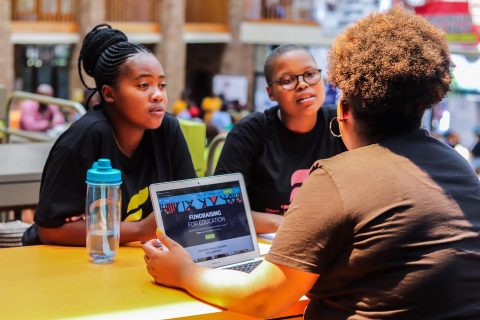Made in SA
Dealing With Disruption
Student protests have thrown the spotlight on South African universities over the last couple of years, revealing many problems with few easy answers beyond the straightforward cost to students themselves.
In 2016, a record number of high-school learners passed matric with a bachelor’s entrance qualification – more than 151 000, in fact. Add in 19 000-odd students from the private sector, plus those who are returning to study after a break, and there are around 171 000 students starting an undergraduate course at a public university every year.
To get an idea of how close to capacity that is, the University of the Witwatersrand received 70 000 applications for 6 200 places this year, the University of Cape Town saw 26 000 applications for 4 200 places, and Stellenbosch University processed 17 000 hopeful forms for 5 000 places. More than 43 000 of the undergraduate courses started were at the University of South Africa (Unisa).
Part of the issue is that South Africans still, rightly or wrongly, see a lot more value in a degree qualification than in other forms of higher education. “Our current societal messaging tells young people that degrees are the only aspiration of any value – which undermines the required growth in status of the TVET sector,” says Dr Felicity Coughlan, director of the Independent Institute of Education (IIE), an organisation of private-sector centres for tertiary studies.
IIE schools currently teach around 33 000 graduate and post-graduate students a year. Just don’t call them “private universities” – under South African law, no such thing exists.
Getting post-school education right is critical, both to meet student demand and to plug some of the gaping skills gaps in the country. And innovative solutions are emerging.
Last year, Wits became the first African university to contribute courses to the “Massively Open Online Course” (MOOC) website edX.com. Anyone can sign in and take edX courses, which have been put together by institutions such as Wits, MIT, Harvard, Berkeley, the Sorbonne and more. Many courses are free, with a small charge for issuing a final certificate, if required.
Thanks to the participation of hundreds of top academics and tens of millions of students from all over the world, edX and its competitors – including Coursera and Udacity – have been able to refine online teaching and assessment models rapidly. This knowledge is filtering back to participants such as Wits, whose own e-learning platform is increasingly being used by lecturers to share materials with classes (see “skype scholars”).
Outside of the mainstream, various other educational experiments are being undertaken. One of the best known is WeThinkCode_, an academy for software engineers which has no entrance requirements, no fees and no teachers. Prospective students need no academic qualifications, but must complete an aptitude test. If they’re successfully enrolled, they learn how to develop through work placements and self-directed learning, using materials provided.
WeThinkCode_ founder Camille Agon says around 200 students are admitted every year. Could the same model be used for other skills development?
“I believe the model works especially well for the tech sector, because it teaches problem-solving and coding in a real-life, practical and peer-to-peer environment,” Agon says. “Learning how to code by coding it is as practical as you can get. The same thinking could be applied to any other professions that require problem-solving, critical and quick thinking, as well as communication and collaboration. For it to work, however, the model would need to be adapted to the profession’s practical environment.”
Skype scholars
As a result of #FeesMustFall protests last year, many campuses were closed during critical periods of exam preparation, and many year-end assessments were cancelled altogether. Many enterprising institutions, departments and individual teachers turned to online tools such as YouTube and Skype to try to keep classes going. At the University of KwaZulu-Natal, some teachers posted videos of their lectures online for students who were staying away from campus. Wits accelerated development of its e-learning platform, Wits-e, to help some students to continue their courses during the protests.





